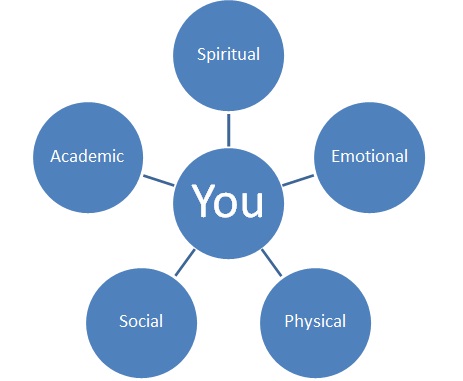“Whether or not organizations want the whole person, whole persons report for work” (Sheep, 2006).
Henry Ford said, ‘bring us your hands, and you can leave everything else at home.’ D.J. rejected that idea and said completely the opposite: ‘I want all of you here. I want the whole person” – D.J. DuPree
I think it’s important that organizations recognize their employees as whole people – physically, emotionally, and spiritually. Organizations should certainly be mindful of this whole body approach, as they have to deal with them on a daily basis. But what does being whole look like in the workplace?
Friedman (2014) defines being whole as “acting with integrity and respects the fact that all of the roles you play make up one whole person and encourages others to view you the same way”. But is it just integrity that would empower an individual to bring their whole self to their work? Being whole in the workplace requires a certain amount of authenticity, from leadership and its culture. Authentic leadership focuses on the character and motives of a leader. Authentic leaders are genuine, have strong convictions and values and their actions show it. Authentic leaders know their purpose and “understand their values and behave towards others based on those values” (Northouse, 2010).
Being whole means an individual is able to be exactly that – their whole self and when they are able to be who they are at work – it creates an environment that is about people and accepting of their values. Hargrove (2003) stated, “The key to creating a value-added culture is to have a philosophy about people”. When people feel accepted and are able to share their whole self, the dynamic shifts. When people feel good about themselves, they are naturally more creative and productive. They add a lot of value to their jobs. You can’t measure it, but you can feel it when you take walk through the halls” (Hargrove, 2003).
Robbins (2015) wrote, “I believe that for us to thrive professionally, especially in today’s world, we must be willing bring our whole selves to the work that we do.” He then offers 3 principles, which help him to exercise the principle of “bring your whole self to work.” They are:
- Embrace vulnerability
- Be willing to have sweaty palmed conversations
- Stop trying to survive
While I agree by willing to bring your whole self to work can help you to thrive professionally and personally in one’s life. But, how common is that being done? How many people are actually willing and able to bring their whole self to work? Some may be able, while others may actually not be willing. Especially, when society and some cultures have drawn these cultural barriers or politically correct lines that may prevent or inhibit certain aspects of one’s life to be shared or lived out in a work setting. I believe as Hargrove (2008) pointed out, to engage in dialogue and “discuss the undiscussable”. What I’ve seen and experienced is that when you do have those discussions, suddenly, those fine lines aren’t as hard to cross as we believed they were and people are open to them and want to learn and discuss them. People want to have those discussions and want to bring their whole self into work. This is where, I believe coaches can serve and almost force those conversations by asking the right questions that stir up those conversations. Being whole, to me, means living out who you are, not hiding behind titles or positions and being who God created you to be. God has called us to serve in the positions we’re in for a purpose, but if compartmentalize that part of our lives in our workplace, then how we expect to serve God and fulfill His plan for us?
References
Hargrove, R. A. (2003). Masterful coaching: Inspire an “impossible future” while producing extraordinary leaders and extraordinary results. San Francisco,, CA: Jossey-Bass/Pfeiffer.
Friedman, S. D. (2014). Work + Home + Community + Self. Harvard Business Review, 92(9), 111-114.
Northouse, P. G. (2010). Leadership: Theory and practice. Thousand Oaks, CA: Sage Publications.
Sheep, M. L. (2006). Nurturing the Whole Person: The Ethics of Workplace Spirituality in a Society of Organizations. Journal of Business Ethics. (4). 357.
